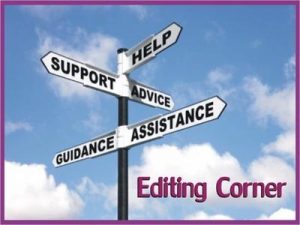by Jean Roberta
Who is the handsome stranger, really? (Anyone who has watched Game of Thrones understands the importance of identity, or birth-status, especially if it has been deliberately disguised.) Why does the tough young woman on a barren planet in the latest series of Star Wars movies have an impressive amount of The Force? Could she be descended from any of the major characters from a generation before?
Mystery, suspense, and ambiguity are the stuff of fiction. Depending on the genre, certain important questions hang over a narrative from the first scene: who are they (or he or she), really? Who committed the murder, and why? Who stole the treasure? Who will fuck whom? How will they do it? Will the seasoned Dom(me) seduce the relatively inexperienced but curious hottie?
Unfortunately, ambiguity and uncertainty are not fashionable these days, at least among editors. When I get editorial advice about a story that has been accepted, but won’t be published until it has been revised to the satisfaction of the editor/publisher, the advice falls into predictable patterns. “You’ve used ‘seems’ three times in this story. It makes your narrator sound weak. Replace it with ‘is.’ Instead of saying ‘She looked worried,’ say ‘She was worried.’”
At some point, I am tempted to declare myself a devout agnostic: someone who doesn’t know whether there is a God or not (or what form that being might take), because there simply isn’t enough proof. I’m also not willing to assume that everyone who has an addiction or a pattern of unfortunate sexual relationships was sexually abused as a child, though some adults definitely were. Even in the real world, I think it’s important to say “I don’t know” if I don’t, and not to clutch at reckless beliefs to make myself sound knowledgeable, or assertive, or confident.
The omniscient third-person viewpoint in literature is artificial. Writing from that lofty perspective, a writer can function as a puppeteer who knows all the characters, inside and out, and can state with confidence that “She was worried,” or “She turned him down because the pleasure she got from manipulating men was like a drug to her.” A seemingly omniscient author can invent characters from other genders or communities that readers from those communities can’t recognize as real. At least the omniscient narrator doesn’t sound weak.
I prefer to write from a viewpoint that feels more natural, which is usually first-person or limited third-person (in which the narrator can only get inside one character’s head or psyche). If the viewpoint character is a servant-girl, she doesn’t have access to the long-term plans of her employers, since they are unlikely to share them with her. If the viewpoint character is a foot-soldier, he can’t know in advance who will win the battle, or even why the general gave an apparently irrational, suicidal order. (For a real-life example of this read “The Charge of the Light Brigade” by Alfred Lord Tennyson.) Viewpoint characters can observe what they see and speculate on what it means, but appearances are often deceiving.
I like the words “seems,” “appears,” and “looks.” (In one case, when an editor asked me to change the word “seemed,” I changed it to “appeared.”) I also enjoy showing that a narrator’s assumptions are unjustified. In one case, an editor vaguely advised me to “be careful” when writing fiction that might be interpreted as racist. The narrator of my story was modelled on the kind of garden-variety local racists I’ve known all my life, and she learns in due course that her assumption about who is most likely to be a thief and a liar is completely wrong. An author’s world-view is more likely to be embedded in a plot than in the words of an untrustworthy narrator.
I’ll probably continue to write about the way things look or seem, regardless of how many editors advise me to eliminate “weak,” speculative words from my vocabulary. In some plots, the whole truth is revealed in ways that it rarely is in life. In other plots, truth remains elusive. Maybe the butler committed the murder, but maybe he was framed. A second investigation might be required, and this might involve a sequel, or a series of novels. And the ultimate conclusion might not be completely conclusive.
In the real world, our questions aren’t always answered. Even the questions that seemed so pressing in our youth tend to change as we age. Part of the reason why adulthood is often more satisfying than adolescence is because we’re more likely to find a Significant Other and a compatible group of friends once we’ve moved beyond the limited milieu of parents, siblings, and high school. Another reason why independent adulthood often comes as a relief is that we’re less likely to spend sleepless nights wondering if certain other people like us or not. Suspense, ambiguity, and doubt in a Young Adult novel are bound to be different from those qualities in a mystery, a fantasy epic, a dystopian tale of the coming Apocalypse, or an erotic story (or an erotic thread in any of those other genres).
If you, as a writer, have ever used the offensive word “seems,” rest assured that you’ll get no complaints from me. Narratives about what seems—as distinct from what is known beyond a doubt– were popular in the past, and they still are. And the need for speculative language in unclear situations is one thing I consider as solid as a rock.
Of course, rocks change and erode over time, just like beliefs and writing styles that seem permanent. To stay upright, we all need to resist being too rigid.









